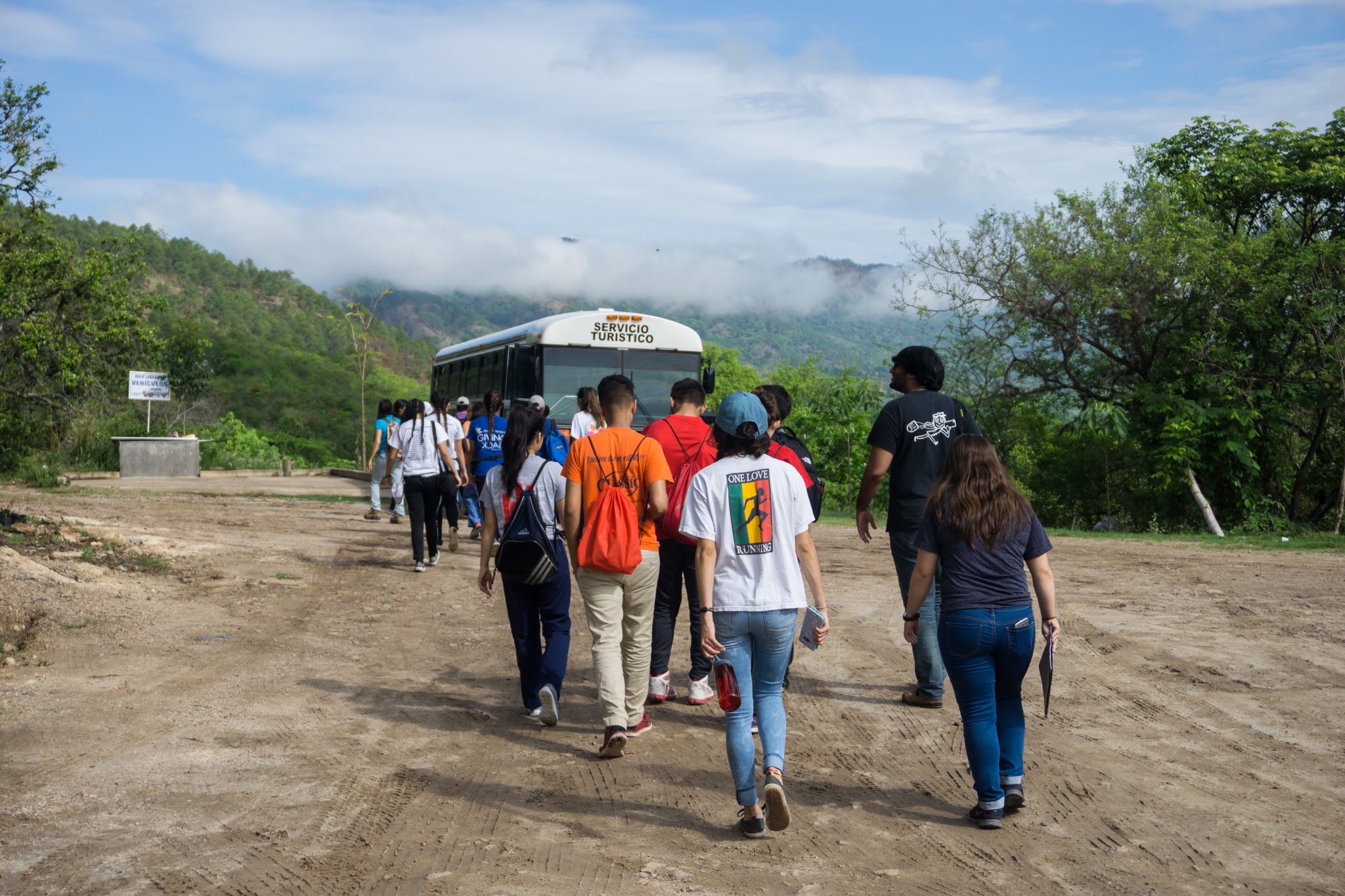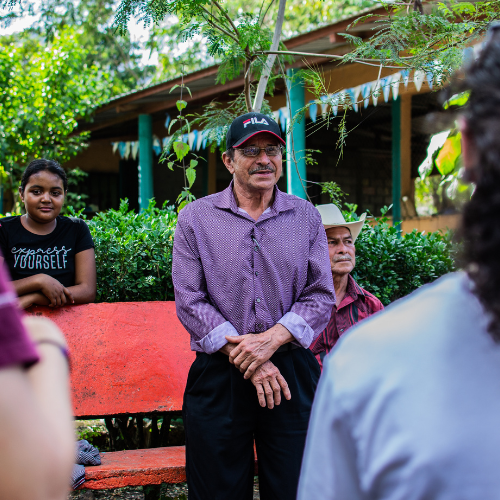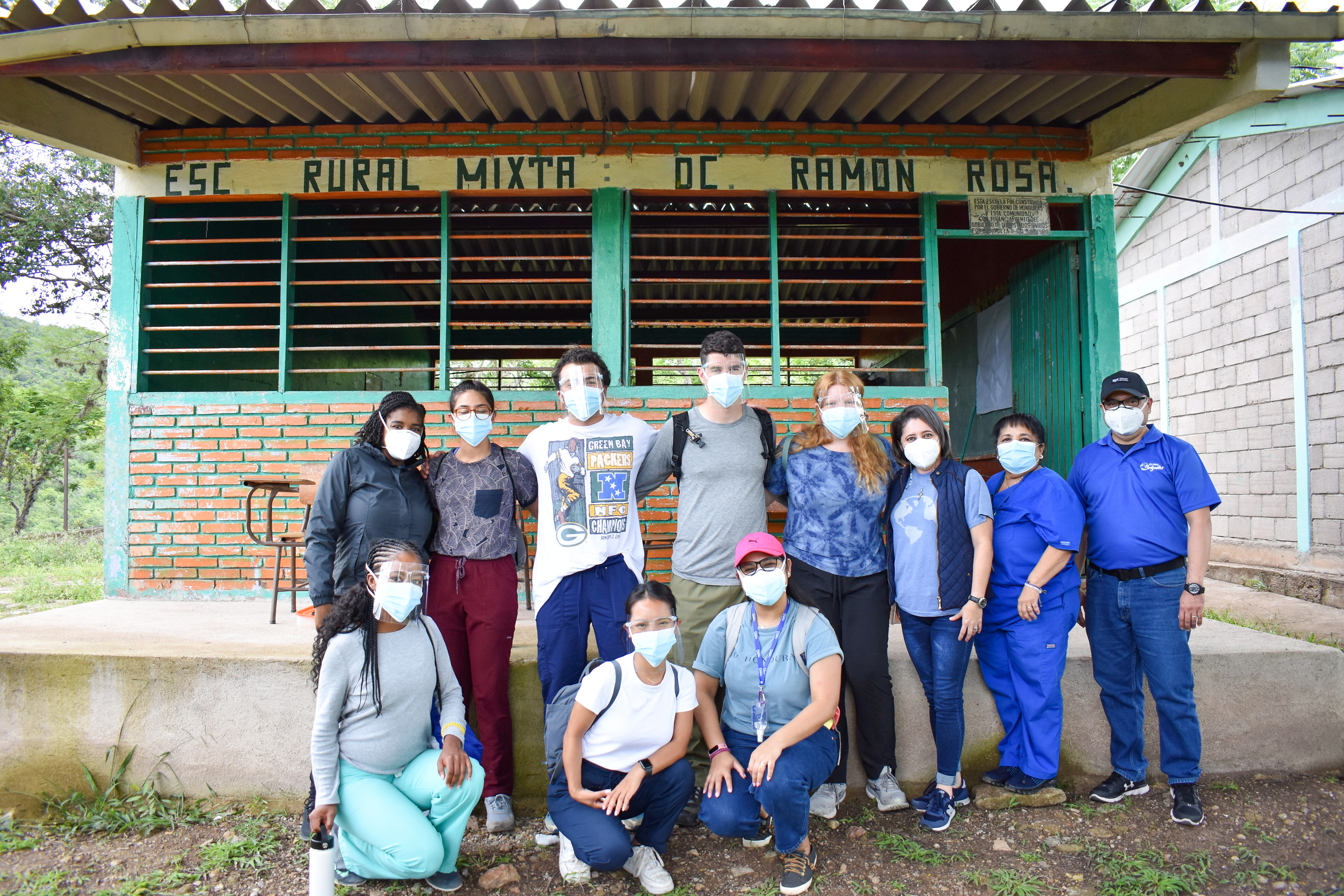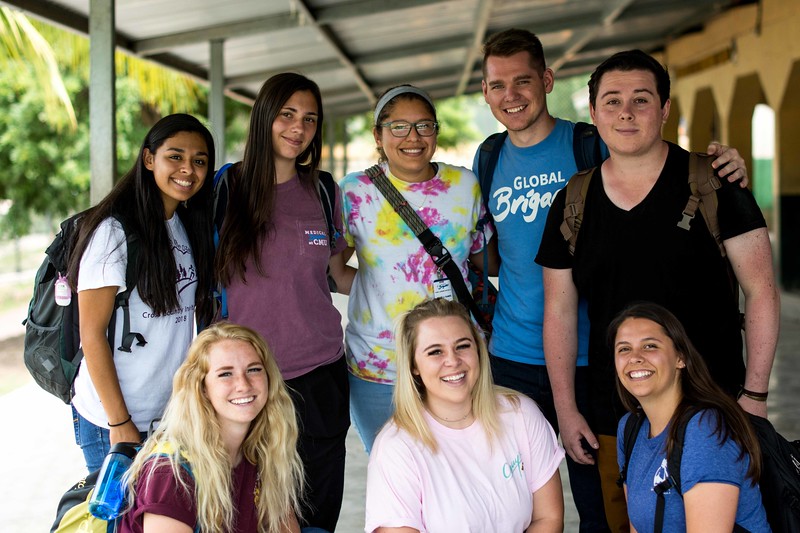By Volunteer Engagement Associate, Rebekah Kawas and Marketing Associate, Sydney Colbert
“Do not go with the intention of helping, go with the intention of learning, and the rest will come naturally.”
– Reha Kakkar, “International Volunteering and the “White Saviour Industrial Complex”
The white savior complex can show up in a few different contexts, but it is typically most harmful when it’s at play in mission trips or global volunteerism. The good news is, you don’t have to surrender your dreams of making a difference internationally.
It’s about a shift in intent and action. You can adopt a more ethical mindset to international volunteering and partner with an organization with local leadership to ensure that your efforts are empowering, not performative.
What is the white savior complex?
White savior complex is the term used to describe privileged, often white, people providing aid to communities they deem disadvantaged. In other words, a white or privileged person provides aid to a Person of Color (POC) or a socially disadvantaged community for self-serving motives.
Typically, the saviors come from the “Global North” to rescue communities of color in the “Global South.” Hollywood loves to portray recycled versions of these stories — where the ever-present white person or people are necessary to rescue the poor, abandoned non-white person.
When paired with international volunteering, white saviorism can become a way to present a more philanthropic image of an organization at the expense of non-white people.
This kind of charity or mission work can become detrimental to local people. It not only perpetuates systemic racism and colonial attitudes, it can create the perception of these developing countries needing a white man (or white woman) to improve their lot in life.
This doesn’t mean every organization that works with developing countries is touched by a case of white saviorism. Interested in how to volunteer abroad without being a white savior? Learn more about Global Brigades and how we’re the largest student-led movement for global health.
How does white saviorism play a role in traditional “mission trips?”
White saviorism is often lumped into the same category as mission trips. Religious organizations are a consistent presence in communities abroad, but any travel with self-serving motives can double as white savior volunteerism or voluntourism.
Are mission trips good or bad? Mission trips aren’t necessarily good or bad at the outset. It’s about more than weighing the pros and cons of mission trips. The intent, benefits to communities served, and volunteer education ahead, during, and after of these trips is more important than labels.
That said, mission trips focused on spreading church doctrine rather than an inherent desire to build a more sustainable world can be harmful to local populations. This sets the stage for white saviorism, as some missionaries treat these trips as vacations with a side of relieving guilt.
In the short-term, there are power dynamics at play between those on that mission and the local people. In the long-term, mission trips can lead to the erasure of native cultures and develop a dependency on continued mission work.
It’s important to note here that while traditional mission trips are often linked to Christian groups, many people use the term more broadly.
Mission trips led by volunteer medical professionals may not have the backing of a faith-based NGO, but the white savior industrial complex in global health may still be at play.
The story of Renee Bach, a young woman who started a Ugandan charity with zero medical training, comes to mind. 105 of the children Bach “served,” more than 10% of the children she came into contact with, died.
If you’re going abroad to help, it’s important to examine your reasons for that action. You should also ask whether local populations support your volunteer trip and whether you have the skills and support network to make positive change.
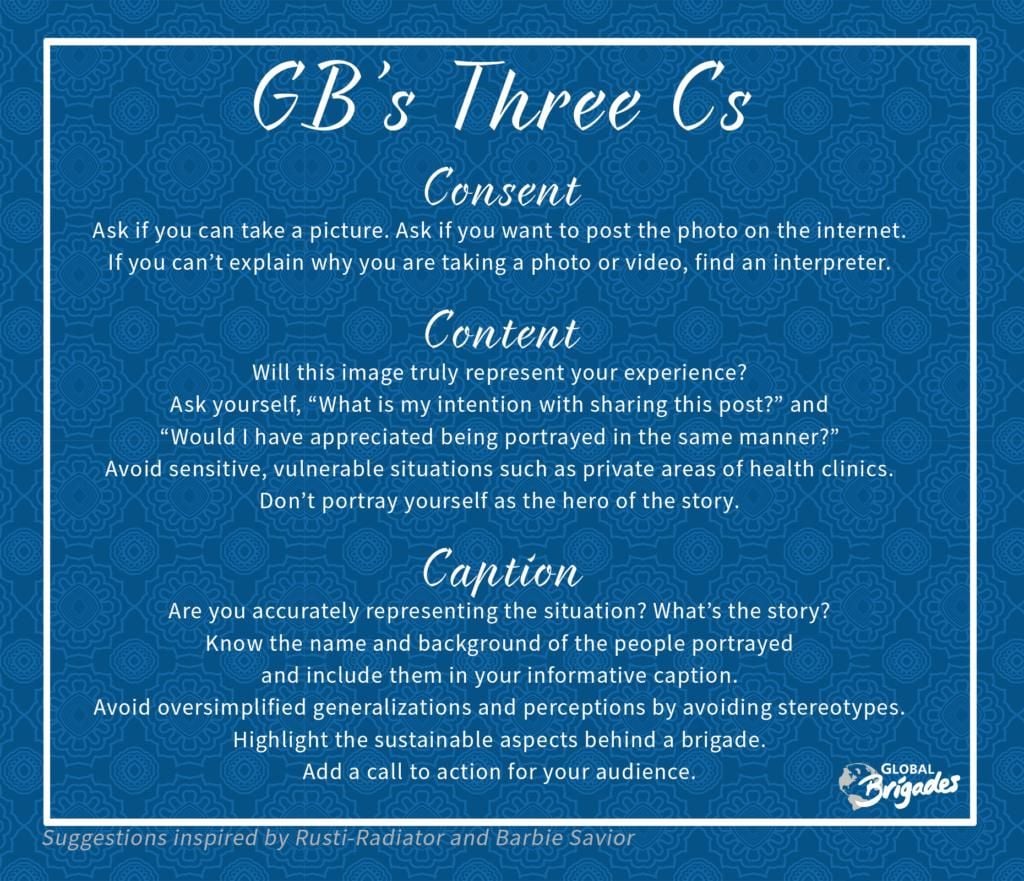
Keep in mind GB’s 3Cs when telling your friends and family about your experience as a volunteer or when you post on social media.
Avoid Volunteer Tourism: You Are Not the Savior Of the Story
Stereotypes harm dignity. The idea that you are the central character in volunteer work abroad meant to help others downplays the rights and autonomy of those you wish to help. Before booking a flight to Africa with that non-profit, it’s important to think deeply about your motives.
Are you looking for social media content? Are you more interested in feeling good or doing good with no additional reward? The story is what you learn about a community from that community, not what you did to “save” that community.
But getting involved with an organization with an extensive local network and a commitment to sustainable international volunteering can allow you to use your skills in a way that helps, rather than hurts, the people you encounter.
That’s one reason why we discourage the use of the term “mission trip” in our organization. Our brigades of students aren’t on a personal mission — they’re empowering people as part of a greater goal of increasing healthcare access in underserved communities around the world.
How Organizations Can Facilitate International Volunteering Initiatives
It isn’t all up to the individual. Organizations can help facilitate more meaningful global volunteerism in the following ways:
- Identify organizational goals. Before partnering with target communities, it’s important for an organization to identify their purpose for working that community. This makes opportunities meaningful for both volunteers and the communities served.
- Do more listening. At Global Brigades, all of our projects are led by local communities. That doesn’t just make our projects more successful, it makes our efforts more sustainable. We’re responding to areas of need voiced by those communities, not scheduling what we believe to be meaningful trips based on only our preconceptions.
- Prepare and educate volunteers. Global volunteerism should be more than a study abroad alternative. The best way to prevent the white savior complex is education and training to enhance that sense of buy-in among volunteers.
- Evaluate and adjust. At Global Brigades, partnerships are evaluated by our Global Brigades Monitoring and Evaluation team. This group monitors feedback, assesses our impact, and tracks collaboration between countries over the course of our projects.
- Encourage sustainability. A focus on sustainability means that an organization should work to empower communities rather than lead projects that force a reliance on that organization.
How Individuals Can Volunteer Internationally With Intention
You can volunteer abroad without falling into the trope of white saviorism. Lead with intention. Do your research. Here are a few more tips:
- Identify your personal motivations. Be honest with yourself. What’s driving your desire to volunteer abroad? Think about what you’d like to learn from the experience instead of what you hope to fix.
- Do your research. Are countries like Kenya or Uganda at the top of your list for a good reason? If you have your heart set on one country, think about why that is. At Global Brigades, we create long-lasting partnerships with countries that we know would benefit from our support.
- Choose an ethical organization. You can leave your mark on the world in an ethical way, but it starts with choosing the right partner. Global Brigades is a great start on your path toward becoming a global citizen.
- Consider your biases. You may be on board with no white saviors in global volunteerism, but that doesn’t mean there’s no more internal work to do. What do you know about the developing world, and what do you assume?
- Consider your skillsets. Global volunteerism can be self-serving in a bad way, but that doesn’t mean you shouldn’t get anything out of it. An experience abroad can be more beneficial if you seek out a program that suits your interests and skills.
Our Global Medical Brigades provide pre-med students an opportunity to gain experience in their future field while making a tangible impact in global health. These unique experiences can even speak volumes on eventual med school applications, too.
You can pursue ethical volunteerism in a mutually beneficial way without becoming a white savior.
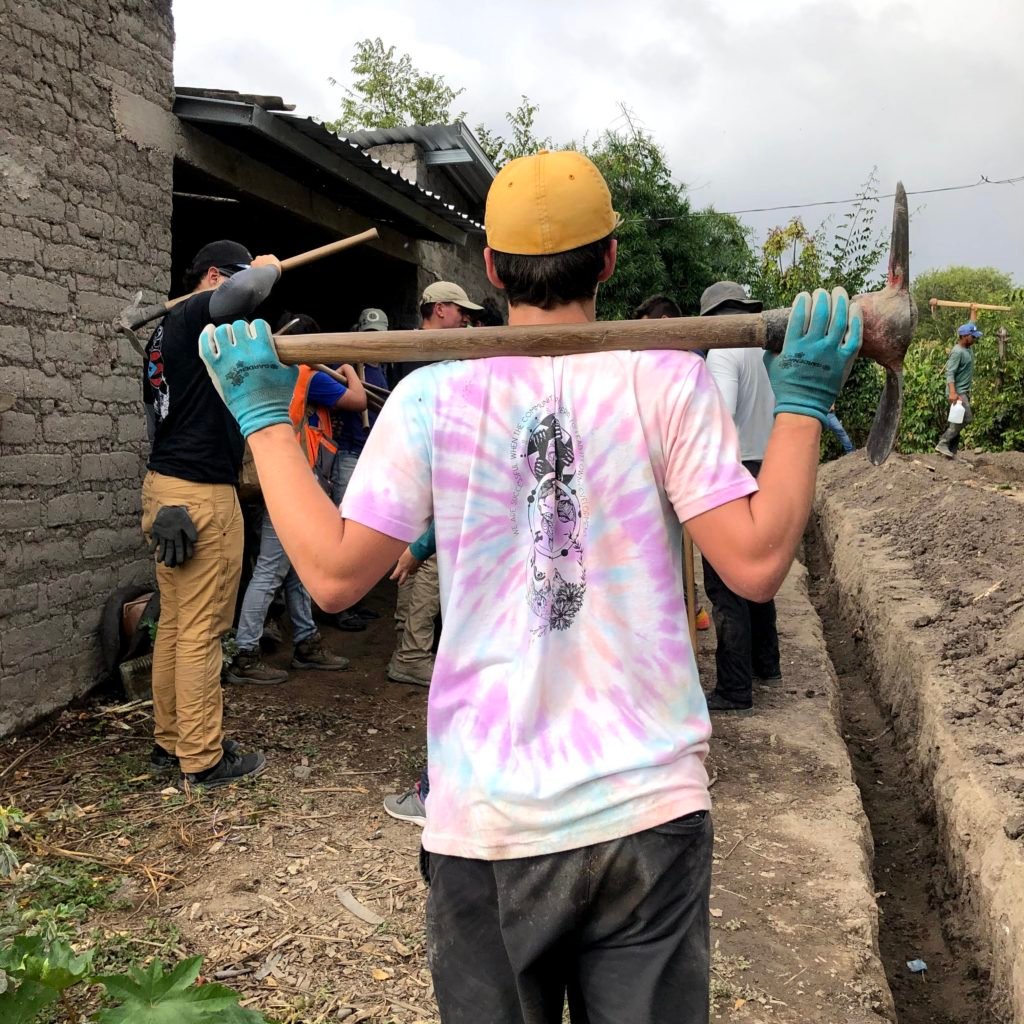
A GB volunteer taking a break from a long day’s work.
How Global Medical Brigades Addresses White Saviorism
Volunteering abroad can be an impactful, emotional experience for everyone involved. At Global Brigades, we’ve seen the lives of countless community members and volunteers alike transformed through our efforts to work with communities in a collaborative way.
We aim to learn, not rescue.
Our Global Medical Brigades are focused on sustainable changes in the health of targeted communities in countries like Ghana, Guatemala, and Honduras. We come at each project with the intention to learn rather than save, and that starts with our goal-setting.
There are typically 4 ways communities become partners with us:
- Local governments suggest regions that may benefit from support.
- Community leaders request to partner with us.
- In-country Global Brigades staff identify potential partners during their visits.
- Partner organizations suggest collaborations for support.
Partnerships that come to us in this way are already more meaningful than any assumptions we could make about areas of need. This is at the heart of how to avoid white savior complex volunteering and embrace more ethical volunteering and fundraising.
We target sustainable local development.
From here, we are able to hear from and work directly with local communities in defining goal areas using our Holistic Model. The model looks at a community’s unique situation in 3 main areas from the United Stations’ list of Sustainable Development Goals:
- Goal 3: Good Health and Well-Being
- Goal 6: Clean Health and Sanitation
- Goal 8: Decent Work and Economic Growth
All 3 areas are keys components of our Global Medical Brigades, as everything is connected when it comes to public health.
This approach allows us to prioritize local stakeholders, improve our own cultural understanding of a region, and make sure that what we’re doing meets our stated goals.
This open stream of communication is paired with in-country GB teams local to the area diligently executing programming on a regular and equitable basis using their intimate knowledge of cultural context and program impact.
Year-round engagement of our programs like this allow student volunteers to be only one piece of what we do. Even on Brigade, volunteer projects are led by local professionals in their respective fields, whether it be a healthcare provider, engineer, or technician.
We offer TeleBrigades to create impact without negative environmental consequences.
TeleBrigades are an option for you and your group to be a part of global impact while avoiding costly travel and the negative environmental impact associated with flying.
During these encounters, local Chapters can see the in-country impact Global Brigades staff has on the ground year-round through organizational funding.
Are you a pre-med student ready to make a tangible impact on public health? Join our Medical Brigades!
If you’re not ready to sign on just yet, talk with one of our staff members by filling out the contact form on that same page. We’ll share more information with you about available scholarships, real connections, and the impact you can make in under-resourced communities.
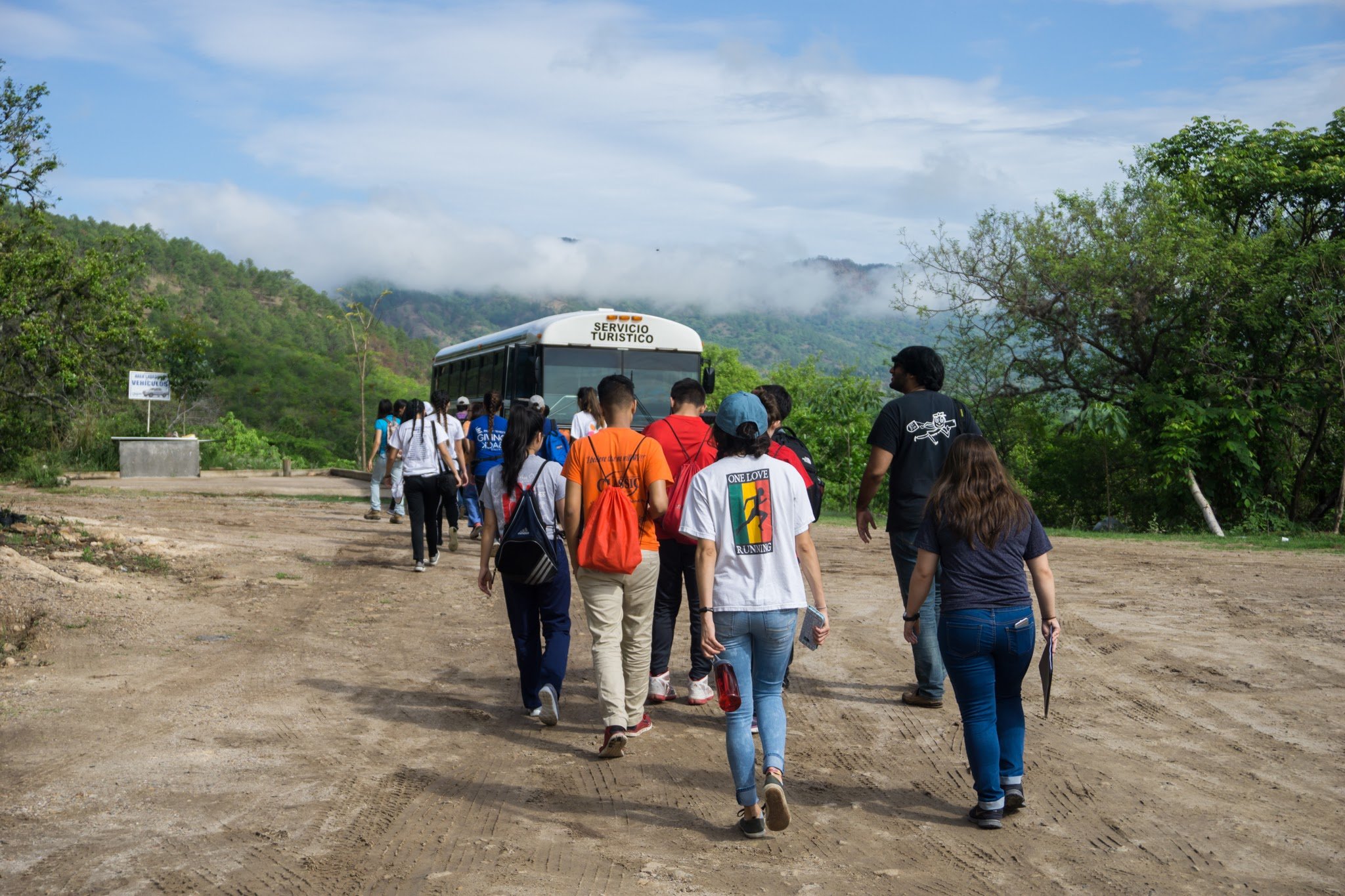
Resources For Ethical Volunteering
To continue your education on white saviorism and other topics relevant to global volunteerism, we’ve put together a list of resources to support you. Education makes us more equipped to support those who need it and lead with humanity and humility.
For more about the white savior complex:
- “Why Anti-Racism Must Be a Cornerstone of Being a Global Citizen” by Joe McCarthy
- “The White-Savior Industrial Complex” by Teju Cole
- Beyond Guilt Trips: Mindful Travel in an Unequal World by Anu Taranath
For books on anti-racism:
- How to Be an Antiracist by Ibram X. Kendi
- Me and White Supremacy: Combat Racism, Change the World, and Become a Good Ancestor by Layla Saad
- The New Jim Crow by Michelle Alexander
For more about Global Brigades:
For more about taking action locally:
For more about taking action virtually:

